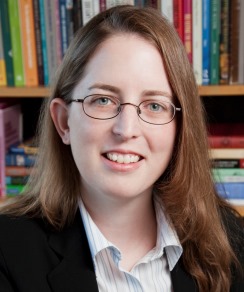College of Education at Illinois professor Jennifer Delaney, an expert on higher education finance spoke recently with education editor Sharita Forrest about Democratic presidential candidate Hillary Clinton’s recently announced New College Compact, a 10-year, $350 billion plan for promoting college access and affordability by containing tuition rates and student loan debt. Below is just the first question and response in the interview.
Delaney: Clinton’s plan would offer $175 billion in grants to colleges to keep tuition low enough that students won’t need loans. How does Clinton’s plan stack up against the solutions promoted by President Barack Obama and fellow Democratic candidate Bernie Sanders?
Forrest: Clinton’s plan is very thoughtful, ambitious and complicated. In many ways, it reflects the complexity of higher education finance policy and the realities of how institutions are funded. It addresses multiple stakeholders’ roles in college affordability – the federal and state governments, colleges, families and students.
It shares many similarities with Obama’s and Sanders’ plans, such as Obama’s goal to make two years of community college free. Sanders also wants to make college free at all U.S. public colleges and universities.
Clinton’s plan stops short of making college totally free, but it aims to ensure that students can obtain baccalaureate degrees at their state’s public university without taking out student loans for tuition.
Politicians are responding to the need to promote affordability and ensure that college costs aren’t a barrier to access. They’re all thinking along the same lines – that as a nation, we need to ensure access to college for the next generation.
Read the rest of the Illinois News Bureau interview here.
Jennifer A. Delaney is an associate professor of higher education at the University of Illinois at Urbana–Champaign (UIUC) in the Department of Education Policy, Organization and Leadership. She is a faculty affiliate with the Institute for Government and Public Affairs and the Forum on the Future of Public Education at UIUC. She is also a faculty affiliate with the Wisconsin Center for the Advancement of Postsecondary Education.
